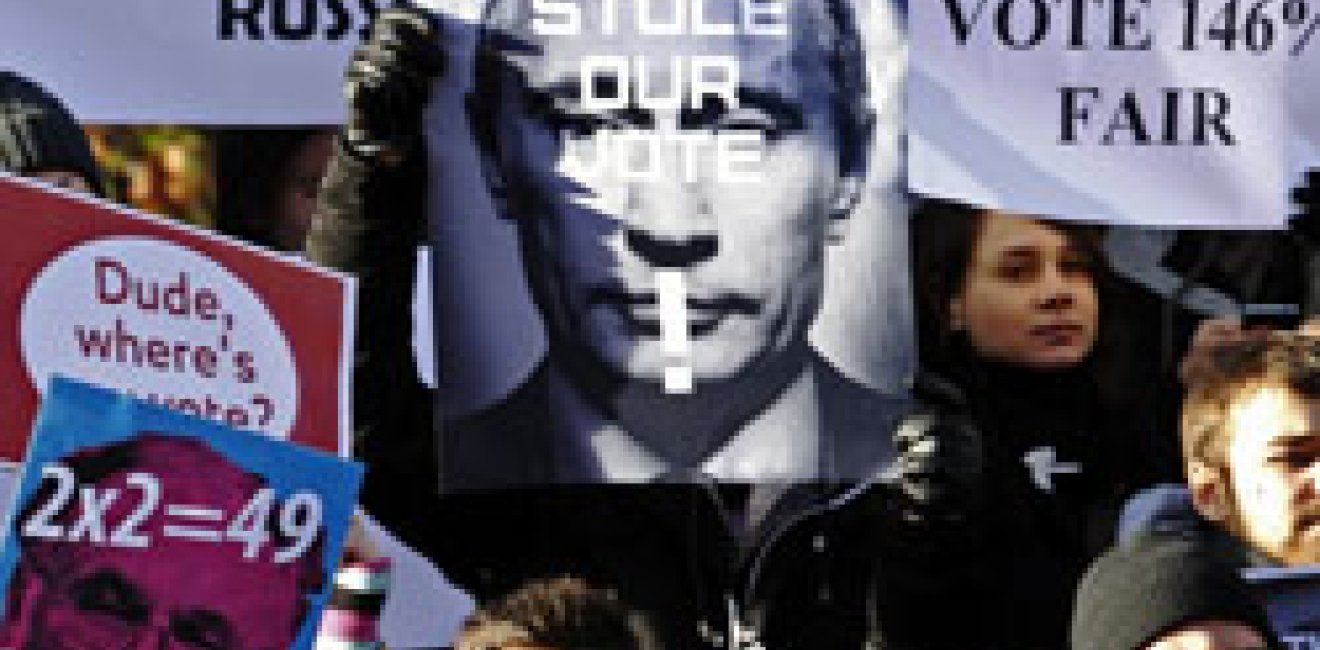While Vladimir Putin and his supporters claimed victory with nearly 64% of the vote, others were not in the mood to congratulate the former president on his return to Russia's highest office. "Due to widespread violations, we consider it impossible to recognize the results of the presidential elections," the League of Voters said in a statement following last week's vote. Even before the election, a Russia previously seen as stable and even apathetic, has been rocked by mass protests based on charges of fraudulent elections and opposition to Putin's rule. One of the key young voices of oppositon is Oleg Kozlovsky, a Russian democracy activist and recipient of the 2010 Ion Ratiu Democracy Award. We spoke to him about Putin's return to the presidency.
Oleg Kozlovsky is a Russian democracy and human rights activist and the recipient of the 2010 Ion Ratiu Democracy Award. He is a co-founder and one of the leaders of Oborona youth movement, regarded as one of Vladimir Putin’s most persistent critics. The organization, which features a clenched fist in its logo, uses non-violent resistance to oppose authoritarianism in the country. Kozlovsky’s activities have not gone unoticed by the Kremlin; he was arrested and detained numerous times and even conscripted illegally into the army for the duration of the 2008 presidential election campaign. During his latest detention he was recognized as a prisoner of conscience by Amnesty International. In 2008, he received the Human Rights Award from Human Rights First. His English-language blog can be found here: http://olegkozlovsky.wordpress.com.





